Keynote Speakers

Donna Farber
Donna L. Farber, Ph.D. is the George H Humphreys, II Professor of Surgical Sciences, Professor of Microbiology and Immunology and the Director of the Human Tissue immunity and Disease Initiative at Columbia University Irving Medical Center. Currently, she leads NIH/NIAID-funded Program grants on human immunity, anti-viral responses and is part of the Human Immunology Project Consortium (HIPC). Dr. Farber has over 180 publications, is a fellow of the AAAS, a distinguished fellow of the American Association of Immunologists (AAI), has served on advisory committees for the NIH, AAI, and multiple editorial boards, and was recently elected to the AAI council, the governing body of the AAI.
The focus of Dr. Farber’s research is on Immune memory and immune responses in tissues. Dr. Farber’s laboratory originally identified tissue resident memory T cells (TRM) in the lung which mediate optimal protective immunity to respiratory virus infections. These findings led her to establish a major new resource for the study of human immunology- involving acquisition of mucosal, lymphoid, and other peripheral tissues from individual organ donors of all ages, and isolation of tissues and cells for analysis of the human immune system in space and time. Dr. Farber’s group has identified how immune cell subsets are compartmentalized and function throughout the body including a core signature for human TRM and site-specific adaptations in lymphoid and mucosal sites. Her study of human immune responses across the lifespan has elucidated developmental pathways in tissues of infant and pediatric donors for establishment of mucosal TRM, how gd T cells are seeded and mature over age. In studies of human aging, her lab has revealed how memory T cells persist and undergo age-associated changes into old age. Her recent work showed how SARS-CoV-2 infection and COVID-19 mRNA vaccines generated T and B cell memory maintained across lymphoid organs and lungs and identified memory regulatory T cells (Tregs) that are maintained in lymph nodes.
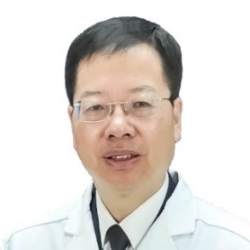
Huji Xu
Prof. Huji Xu graduated from the Second Military Medical University (SMMU), where he also completed his residency and internship. He later pursued a Ph.D. in rheumatology and clinical immunology in Australia. Following his doctorate, he worked at Flinders Medical Centre and the Queensland Institute of Medical Research. Before returning to China full-time, he served as an R.D. Wright Fellow at the Australian National Health & Medical Research Council and as a Professor at the University of Queensland.
In 2003, Prof. Xu was appointed the inaugural Chair Professor of the Department of Rheumatology and Immunology at Shanghai Changzheng Hospital, affiliated with SMMU. Under his leadership, the department rapidly became one of China's largest clinical and research centers for rheumatology. In 2016, he became the inaugural Executive Associate Dean of the School of Clinical Medicine at Tsinghua University.
Prof. Xu’s research spans multiple fields, including rheumatology, human genetics, and vaccinology. His current primary research focus is the pathogenesis of rheumatic diseases. He is a pioneer in applying allogeneic CAR-T cell therapy to treat refractory autoimmune diseases. Over the past decade, his work has led to major publications in prestigious journals such as Cell, Nature, Nature Genetics, The Lancet Rheumatology, Arthritis & Rheumatology, Annals of the Rheumatic Diseases, and Proceedings of the National Academy of Sciences USA.
Session Speakers
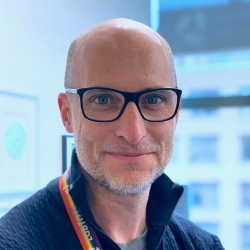
Bryan Coburn
Bryan Coburn, MD, PhD is an Infectious Diseases Clinician-Scientist at the University Health Network in Toronto. His research focus is the measurement and modification of human (patient) microbiomes in infectious, inflammatory and neoplastic diseases where the microbiome has been implicated in health outcomes in observational studies and non-human models.
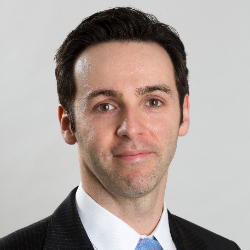
Slava Epelman
Slava Epelman, MD, PhD is a Scientist at UHN, Clinician-Scientist at the Peter Munk Cardiac Centre, Associate Professor of Medicine at UofT and Loretta Rogers Chair in Immunobioengineering. He is an expert in immuno-cardiology, and the use of high-dimensional data sets to explore immune cell function in models of viral infection. Moreover, a key focus of his lab is to understand how cardiovascular risk factors modulate tissue injury in response to viral infection. Dr. Epelman has multiple publications focused on understanding how viral myocarditis develops into heart failure, how single-cell transcriptomic analyses underlie recovery of tissue injury, as well as understanding the conservation of macrophage subtypes across organs and species.
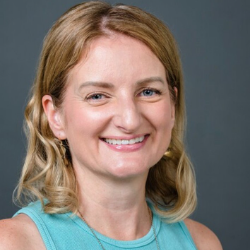
Jennifer Gommerman
Dr. Gommerman received her Ph.D. (Immunology) at the University of Toronto in 1998. She went on to do a post-doctoral fellowship at Harvard Medical School studying the complement pathway and then joined Biogen Inc. as a Staff Scientist in 2000. During her tenure at Biogen, she became interested in B cells, Multiple Sclerosis and the TNF superfamily of molecules. After 3 years in Industry, she returned to Academia as an Assistant Professor (Immunology) at the University of Toronto in 2003 and in 2015 was promoted to full Professor. In 2023 she assumed the position of Department Chair. Dr. Gommerman’s basic research continues to focus on how members of the TNF superfamily of molecules regulate immunity and autoimmunity. Her team has uncovered a novel gut-brain axis that regulates neuroinflammation. Dr. Gommerman has also been examining the role of B lymphocytes in Multiple Sclerosis patients and in animal models of MS. Her contributions to understanding the mucosal antibody response to SARS-CoV-2 resulted in her co-leading a biomanufacturing and pandemic preparedness efforts for a hub of 8 Ontario Universities (HI3). Dr. Gommerman has won multiple mentorship awards from the Temerty Faculty of Medicine, is a Distinguished Fellow with the American Association of Immunology (class of 2025) and holds a Canada Research Chair in Tissue-specific Immunity.
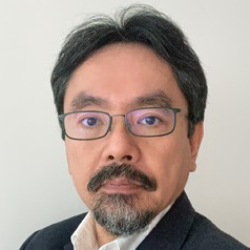
Naoto Hirano
Dr. Naoto Hirano received his MD and PhD from the University of Tokyo, followed by post-doctoral training at the Dana-Farber Cancer Institute, Harvard Medical School. He currently serves as the Tier 1 Canada Research Chair in Immunology to Immunotherapy and previously held the Amgen Chair in Cancer Research at Princess Margaret Cancer Centre, University Health Network. At Princess Margaret, he occupies multiple leadership roles, including Chair of the Immuno-Oncology Program, Co-Chair of the Centre for Immunology to Immunotherapy (Ci2i), Associate Director for Research of the Tumor Immunotherapy Program (TIP), and Senior Scientist. Additionally, Dr. Hirano holds an appointment as Professor in the Department of Immunology at the University of Toronto and serves as Co-Director of the Toronto Human Immunology Network, a Federation of Clinical Immunology Societies (FOCIS) Center of Excellence. His research centers on developing innovative immunotherapies to bridge the gap between fundamental research discoveries and their clinical translation, enhancing therapeutic options for cancer and other diseases.
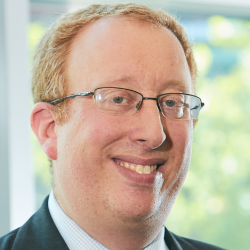
Gideon Hirschfield
Professor Gideon Hirschfield, MA(Oxon) MB BChir (Cantab) FRCP PhD is recognised globally as a thought leader in liver medicine and is a patient-centred clinician expert. Dr. Gideon Hirschfield is Director of the Autoimmune Liver Disease Program at UHN’s Francis Family Liver Clinic and Toronto Centre for Liver Disease and holds the Lily and Terry Horner Chair in Autoimmune Liver Disease Research. He has extensive clinical expertise in the management of complex liver disease, pre- and post-transplant, and is now co-leading the Autoimmune Liver Disease Program at TCLD. This comprehensive program offers life-long care to patients with autoimmune hepatitis, primary biliary cholangitis, and primary sclerosing cholangitis, while advancing ground-breaking research. Committed to discovery and translational science in liver disease, Dr. Hirschfield is driven to identify and implement effective, personalised therapies for patients with immune and inflammatory mediated liver diseases, delivered through innovative platforms and based on cutting-edge laboratory science. As a clinician-scientist, Dr. Hirschfield manages a broad platform of translational and trials based clinical science with the goal of advancing therapies for patients with inflammatory liver disease that prevent the need for transplantation. He has published nearly 200 times on Pubmed and has papers spanning basic science, clinical science, and clinical trials.
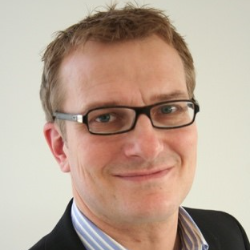
Elmar Jaeckel
Dr. Elmar Jaeckel, MD is a leading expert in liver and islet transplantation, immune tolerance, and metabolic inflammation. He serves as the Medical Director of both the Liver Transplant Program and the Islet Transplant Program at the Ajmera Transplant Centre, University Health Network, Toronto. A trained gastroenterologist, hepatologist, endocrinologist, diabetologist, and transplantation specialist, Dr. Jaeckel has extensive experience in developing advanced cell-based therapies for immune tolerance. His ground-breaking work in chimeric antigen receptor (CAR) Treg therapies has led to the development and patenting of CARs for transplanted organs, xenotransplantation, and autoimmune diseases. He is a co-founder of Quell Therapeutics, a biotechnology company advancing CAR Treg therapies for clinical applications, and the principal investigator of LIBERATE, the first clinical trial using CAR Tregs to induce tolerance after liver transplantation. Additionally, his beta cell-specific CAR Tregs for type 1 diabetes are being developed in collaboration with AstraZeneca, supported by up to $1 billion in funding. Dr. Jaeckel’s scientific focus remains on advancing CAR Treg therapies as long-term, living drugs capable of inducing durable immune tolerance after a single application. He continues to innovate new strategies to enhance Treg signalling, stability, and effector functions, aiming to establish tissue-specific immune tolerance while preserving overall immune competence.
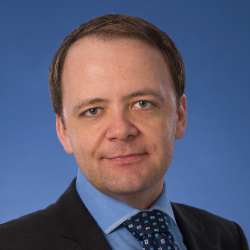
Stephen Juvet
Stephen Juvet, MD, PhD, FRCPC is a scientist at the Toronto General Hospital Research Institute and a respirologist with the Toronto Lung Transplant Program and Ajmera Transplant Centre at the University Health Network. His research focuses on identifying and targeting mechanisms of lung allograft rejection using animal models and human biospecimens. He has an interest in engineering regulatory T cells for cellular therapy of organs prior to and after transplantation. His work has been funded by CIHR, NIH, the New Frontiers in Research Fund, the US Cystic Fibrosis Foundation and Cystic Fibrosis Canada.
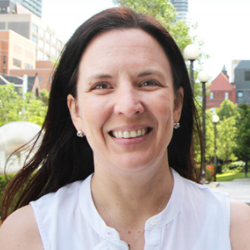
Sonya MacParland
Dr. Sonya MacParland, PhD is a Senior Scientist in the Ajmera Transplant Centre at UHN and an Associate Professor in the University of Toronto’s Department of Laboratory Medicine and Pathobiology and the Department of Immunology. Dr. MacParland holds a Canada Research Chair Tier 2 in Liver Immunobiology. Her research program is focused on translating fundamental knowledge about the immune biology of the liver into clinical applications. Dr. MacParland and her research team are using advanced genomics including single cell RNA sequencing to describe the microenvironment of the healthy and diseased human liver. Her team recently developed the first transcriptomic map of the human liver (Nature Communications; 2018) as a platform to examine how immune dysregulation drives liver diseases. Dr. MacParland’s group is also examining how the liver immune environment can be therapeutically targeted and manipulated using nanoparticles to slow or reverse ongoing damage (Nature Materials; 2016, ACS Nano; 2017, ACS Nano 2020).
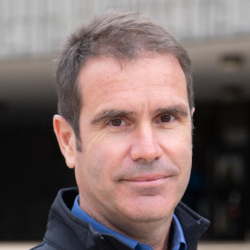
Alberto Martin
Dr. Martin is a Professor and Sanofi Pasteur Chair in Human Immunology in the Department of Immunology at the University of Toronto. He completed his B.Sc. degree at McGill University, and his PhD degree in the Department of Immunology at the University of Toronto. He then pursued post-doctoral training at Albert Einstein College of Medicine in New York, U.S.A., with Dr. Matthew Scharff, focusing on characterizing the molecular mechanisms of antibody responses, specifically somatic hypermutation and class switch recombination, which are two processes that are central to the efficient neutralization of pathogens and toxins. In 2003, he was recruited as a faculty member to the Department of Immunology at the University of Toronto. Dr. Martin’s research program is devoted to understanding the role of genes, their interaction with the environment, and their impact on immunity and pathological conditions, including cancer. His main interest is on antibody production, on how high-affinity antibodies are generated, and how antibodies of different classes are produced. Both of these processes are necessary for an efficient antibody response. Dr. Martin is also investigating the role of the gut microbiota in the etiology of colon cancer and in a new gene that promotes inflammatory bowel disease (IBD).
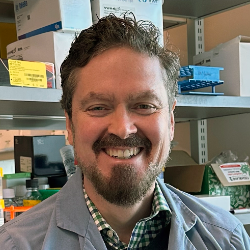
Tracy McGaha
Dr. McGaha earned his Ph.D. in 2002 from the Mount Sinai School of Medicine and New York University under the mentorship of Professor Constantin Bona. He then joined Rockefeller University as a postdoctoral fellow in the Leonard Wagner Laboratory of Molecular Genetics and Immunology, working under Professor Jeffrey V. Ravetch. During his tenure at Rockefeller, Dr. McGaha investigated the mechanisms of inhibitory receptor signaling in the prevention of inflammatory pathology and autoimmune disease. In 2006, Dr. McGaha established his own laboratory at Temple University in Philadelphia, where he studied the role of tissue-resident macrophages in peripheral tolerance. In 2008, he relocated his research group to the Medical College of Georgia, focusing on how microenvironmental sensors influence innate immune function in cancer and autoimmune diseases. Following recruitment by Dr. Pam Ohashi, Dr. McGaha joined the University of Toronto and the Princess Margaret Cancer Centre in 2015. His research continues to explore the tumor microenvironment, innate immunity, and their impact on cancer outcomes. Currently, he serves as a Senior Scientist in the Tumor Immunotherapy Program at the Princess Margaret Cancer Centre and as a Professor in the Department of Immunology at the University of Toronto. His research interests center on understanding the interplay between cell death, inflammation, and metabolic stress sensors in macrophage function, as well as the crosstalk between the microbiome and immune cells in the context of cancer therapy resistance.
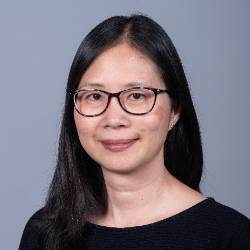
Linh Nguyen
Dr. Nguyen obtained her PhD in Immunology at the University of Toronto and pursued postdoctoral studies at Harvard Medical School. She has led the Cell Manufacturing Team of the Tumor Immunotherapy Program at the Princess Margaret Cancer Centre since its inception in 2005. She is now the Head of the Centre for Cell Manufacturing at UHN. Her team has manufactured cell and gene therapy products for early phase clinical trials such as tumor-infiltrating lymphocytes (TILs), T-cell receptor (TCR)-engineered T cells and chimeric antigen receptor (CAR)-T cells. Her team’s expertise includes process and analytical development, technology transfer, manufacturing operations, quality testing, quality assurance, and regulatory submissions.
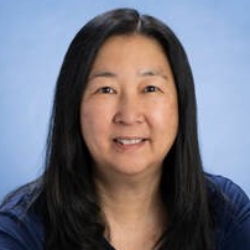
Pamela Ohashi
Pamela Ohashi, PhD, FRSC is a Senior Scientist at UHN’s Princess Margaret Cancer Centre (PM), a Professor of Immunology at the University of Toronto (UofT) and leads Ci2i. She also established and directs the Tumor Immunotherapy Program (TIP) at PM that includes state-of-the-art platforms for Cell Manufacturing of cell and gene therapy products, as well as Immune Profiling with in-depth correlative analysis of specimens from investigator-initiated and industry-sponsored trials. She is an international leader in basic and translational immunology research with a focus on understanding the biology surrounding CD8 effector cells. Throughout her career, she has significantly contributed to our current understanding of T cell tolerance and activation and the impact of CD8 subsets and metabolic programming on immunity. More recently, she has discovered key roles for the innate immune system in regulating anti-viral and anti-tumor T cell responses. In 2008, she co-founded and is the Inaugural President of the Canadian Cancer Immunotherapy Consortium, and previously served as Chair of the American Association for Cancer Research’s Cancer Immunotherapy Steering Committee and as a member of the Board of Directors for the Society for Immunotherapy of Cancer.
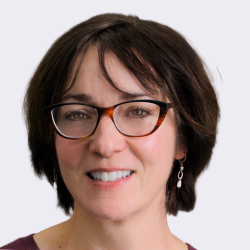
Dana Philpott
Dana Philpott, PhD is a Professor and Associate Chair, Research, in the Department of Immunology at the University of Toronto. She also provides scientific oversight for the gnotobiotic mouse facility at the Temerty Faculty of Medicine, which is the first of its kind in Toronto to offer germ-free and defined-community gnotobiotic mice as well as pet store mice. Dr. Philpott’s research employs animal models of inflammatory bowel disease (IBD) and colorectal cancer and considers how innate immunity and the microbiome shape immune homeostasis within the intestine. Dr. Philpott’s work aims to define new disease mechanisms and potential targets for therapy for these increasingly prevalent intestinal disorders. With Ci2i, Dr. Philpott will establish a Microbiome Platform bridging basic and clinical cancer researchers with the goal to accelerate the translation of microbiome-based research into potential new approaches for cancer treatments.
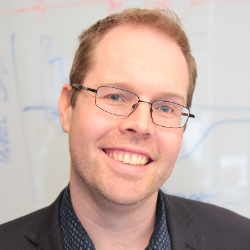
Trevor Pugh
Dr. Trevor Pugh, PhD, FACMG is a cancer genomics researcher and board-certified molecular geneticist at the forefront of precision medicine. As holder of the Canada Research Chair in Translational Genomics, he uses genome sequencing to understand causes of cancer, guide treatment of patients, and detect early disease using blood tests. He is appointed as Professor in the University of Toronto Department of Medical Biophysics, Senior Scientist at the Princess Margaret Cancer Centre, and Senior Investigator at the Ontario Institute for Cancer Research. He directs the OICR Genomics Program and the Princess Margaret Genomics Centre, genomics cores that specialize in single cell, cell-free DNA and clinically-accredited whole genome sequencing. He has contributed to multiple large-scale genomics and data-sharing programs including NCI TARGET, AACR GENIE, and the Terry Fox Marathon of Hope Cancer Centres Network.

Ben Wang
Ben Wang, PhD is the Head of the Centre for Integrative Immune Analysis at the Princess Margaret Cancer Centre. Dr. Wang and his team work with clinician investigators, scientists, and research staff to enable in-depth immune analysis for clinical and translational studies using advanced immunological assays and bioinformatics pipelines.
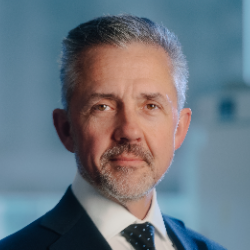
Bradly Wouters
Dr. Bradly Wouters, BEng, PhD is an internationally recognized leader and cancer researcher. He became Executive Vice President of Science and Research at UHN in 2016 and prior to that served as the Interim Director of Research at the Princess Margaret Cancer Centre since 2014. He joined UHN in 2008 as Senior Scientist and Director of the Princess Margaret Hypoxia Program, and has held faculty appointments at the University of Toronto in the Department of Medical Biophysics and the Department of Radiation Oncology since that time. Prior to joining UHN, Dr. Wouters was Professor and Head of Experimental Radiation Oncology at Maastricht University in the Netherlands. As EVP of Science and Research, Dr. Wouters is focused on creating an environment that incentivizes, facilitates, and rewards excellence in basic, translational, and clinical research across all elements of UHN.
Sponsor Presenters
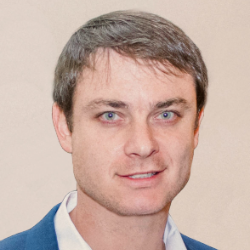
Juan Gijzelaar
Juan Gijzelaar is a seasoned sales professional with over a decade of experience in Sales and Marketing across Canada, Germany, and South Africa, with a focus on the life sciences industry. He currently focuses on business development for Collaborative Drug Discovery in Canada and the Mid-West U.S., helping researchers streamline and manage their research data more effectively. Juan’s experience includes roles at Roche and Zymo Research, as well as collaborations with industry leaders like Illumina and Hamilton Robotics, giving him a strong understanding of the market and its evolving needs.
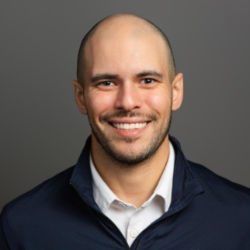
Rami Mechael
Rami Mechael, MSc is a Sr. Account Manager at 10x Genomics. Rami has been working closely with the Toronto research community for the past 5 years enabling 10x Genomics single-cell and spatial assays locally, and advocating for Toronto research internally within 10x Genomics.
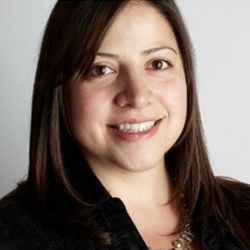
Sandra Sacco
Sandra Sacco, PhD, is a Senior Medical Science Liaison in Immunology at Sanofi Canada, where she leads strategic, enterprise-level medical initiatives across dermatology and gastroenterology. With over five years of pharmaceutical industry experience, she has contributed to the successful Canadian launches of advanced systemic therapies for dermatologic and respiratory diseases. Sandra brings over two decades of combined academic and industry expertise rooted in her early research at the University of Toronto, where she earned her MSc and PhD studying food-drug interactions in rodent models of osteoporosis and breast cancer. She is deeply committed to medical affairs, advancing medical science, stakeholder engagement, and clinical trial excellence.
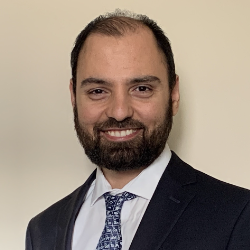
Amir Tehrani
Dr. Amir Tehrani is a Field Application Scientist at Bio-Rad Laboratories ltd., where he has been supporting customers for the past three years. In his role, he provides scientific support through seminars, training sessions, project consultations, and troubleshooting. His primary focus is to help researchers overcome technical challenges in the lab. Dr. Tehrani earned his PhD in Molecular Science from the Toronto Metropolitan University in 2020.
Patient Speaker
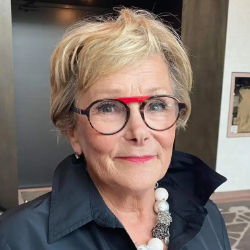
Charlotte Grad
There have been many chapters of Charlotte’s 72 years. She was a farmer for almost 30 years. She returned to University as a mature student to earn her psychology degree. Widowed at 40, with three children, she later managed her own business investing and managing a real estate portfolio. She is a fiercely loyal friend, and is a revered mother, grandmother and mentor. Charlotte has survived three cancers. She survived thyroid cancer in 2005 and later lung cancer in 2023, both were detected early and readily resolved. But the fight of her life was with Stage 4, Diffuse Large B-Cell Non-Hodgkins Lymphoma with two gene mutations, diagnosed in 2017. Charlotte was blessed to be one of the first recipients of CAR-T treatment in Canada. Now eight years later she is still in remission. Her life and death struggle with cancer a distant experience fading in the rearview mirror. She has rediscovered her life and all those wonderful passions: travel, theatre, the gym, hiking, nature and the abundant joy of her children, grandson, supportive partner, family and close friends. Charlotte starts everyday filled with gratitude, acknowledging her blessings. She is a living testament to how positive attitude and strong determination can lead to miracles. In her case, CAR-T was that miracle.
Event Date
June 12, 2025
Event Location
MaRS Conference Centre
101 College St,
Toronto, Ontario
Information
Conference Services
conferences@uhn.ca



 Copyright© | MYConference Suite Registration | D.E. Systems | All Right Reserved.
Copyright© | MYConference Suite Registration | D.E. Systems | All Right Reserved.